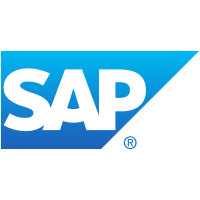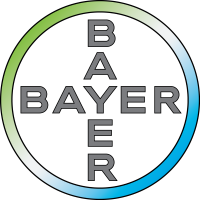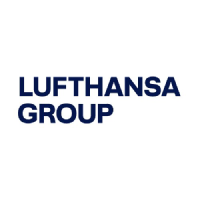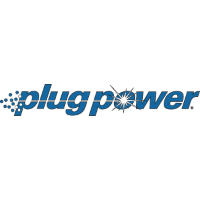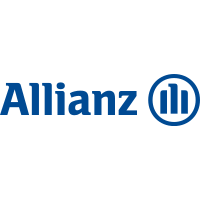PRINCETON, N.J., Oct. 15 /PRNewswire-FirstCall/ -- Soligenix, Inc., (Soligenix or the Company) (OTC Bulletin Board: SNGX - News), formerly known as DOR BioPharma, Inc., a late-stage biotechnology company, announced today that it has initiated enrollment in its confirmatory Phase 3 randomized, double-blind, placebo-controlled, multicenter clinical trial evaluating orBec(®) for the treatment of acute gastrointestinal Graft-versus-Host disease (GI GVHD). The initiation of enrollment in this trial also triggered the payment and receipt by Soligenix of a $1 million milestone pursuant to the Company's collaboration agreement with Sigma-Tau Pharmaceuticals, Inc.
Related Quotes
| Symbol | Price | Change |
|---|
| SNGX.OB | 0.2950 | -0.0050 |
|---|
|
This Phase 3 clinical trial, also referred to as the SUPPORTS protocol (Sparing Unnecessary Prednisone Phase 3 orBec(®) Randomized Treatment Study), will enroll an estimated 166 patients to confirm the clinically meaningful endpoints observed in previous Phase 2 and Phase 3 clinical studies. The primary endpoint is the treatment failure rate at Study Day 80. This endpoint was successfully measured as a secondary endpoint (p-value 0.005) in the Company's previous Phase 3 study as a key measure of durability following a 50-day course of treatment with orBec(®) (i.e., 30 days following cessation of treatment). The SUPPORTS trial will be conducted at major transplant centers throughout the US and is expected to complete with clinical data available in the first half of 2011.
The SUPPORTS trial will be conducted pursuant to a Special Protocol Assessment (SPA) agreement that the Company had reached with the US Food and Drug Administration (FDA). An agreement via the SPA procedure is an agreement with the FDA that a Phase 3 clinical trial's design (e.g., endpoints, sample size, control group and statistical analyses) is acceptable to support a regulatory submission seeking new drug approval. The European Medicines Agency (EMEA) also agreed that should the new confirmatory Phase 3 study produce positive results, the data would be sufficient to support a marketing authorization approval in all 27 European Union (EU) member states.
Keith Sullivan, MD, James B. Wyngaarden Professor of Medicine and Chief of the Division of Medical Oncology and Transplantation at Duke University Medical Center and Co-Principal Investigator of the SUPPORTS study, said, "In over 30 years of clinical studies evaluating potential treatments for acute GI GVHD, only the Phase 2 and 3 studies with orBec(®) have been shown to have a positive impact on both controlling GI GVHD and improving patient survival. By using these data in the design of this Phase 3 clinical study, I am confident that it has the potential to replicate the outcomes previously demonstrated including the primary endpoint. I look forward to working with the Soligenix team and my fellow clinicians in the execution of this clinical study so that transplant teams around the world can include orBec(®) as part of their arsenal to fight this debilitating disease."
"orBec(® )has demonstrated consistent and meaningful clinical benefit to patients in Phase 2 and 3 clinical trials in GI GVHD," stated Brian L. Hamilton, MD, PhD, Senior Vice President and Chief Medical Officer of Soligenix. "The depth and strength of our available Phase 3 data allowed us to design and power this confirmatory trial to maximize orBec(®)'s likelihood of success. The primary endpoint, established via the SPA procedure as the treatment failure rate at Study Day 80, is designed to replicate the statistical significance from our prior Phase 3 clinical trial with orBec(®). We look forward to completing this clinical trial and being the first company to address the unmet medical need of GI GVHD. Launching this important trial is a testimony to the extraordinary talents and efforts of the clinical and regulatory teams at Soligenix, along with the support of our partners, vendors and clinical investigators."
About GI GVHD
GI GVHD is a debilitating, painful disease and an unmet medical need. It is a common disorder among immunocompromised cancer patients after receiving hematopoietic cell transplantation. Unlike organ transplants where the patient's body may reject the organ, in GVHD it is the donor cells that begin to attack the patient's (host's) body - most frequently the gastrointestinal tract, liver and skin. Patients with mild-to-moderate GI GVHD typically develop symptoms of anorexia, nausea, vomiting and diarrhea. If left untreated, GI GVHD can progress to ulcerations in the lining of the GI tract, and in its most severe form, can be fatal. There are no FDA approved therapies to treat GI GVHD.
About orBec(®)
orBec(®) represents a first-of-its-kind oral, locally acting therapy tailored to treat the gastrointestinal manifestation of GVHD, the organ system where GVHD is most frequently encountered and highly problematic. orBec(®) is intended to reduce the need for systemic immunosuppressive drugs to treat GI GVHD. Beclomethasone dipropionate (BDP) is a highly potent, topically active corticosteroid that has a local effect on inflamed tissue. BDP has been marketed in the US and worldwide since the early 1970s as the active pharmaceutical ingredient in a nasal spray and in a metered-dose inhaler for the treatment of patients with allergic rhinitis and asthma. orBec(®) is formulated for oral administration in GI GVHD patients as a single product consisting of two tablets; one tablet is intended to release BDP in the proximal portions of the GI tract, and the other tablet is intended to release BDP in the distal portions of the GI tract.
Soligenix has previously run two randomized, double-blind, placebo-controlled clinical trials in acute GI GVHD with orBec(®). The first trial was a 60-patient Phase 2 single-center clinical trial conducted at the Fred Hutchinson Cancer Research Center. The second trial was a 129-patient pivotal Phase 3 multi-center clinical trial conducted at 16 leading bone marrow/stem cell transplant centers in the United States and France. Although orBec(®) did not achieve statistical significance in the primary endpoint of its pivotal trial, namely median time-to-treatment failure through Day 50 (p-value 0.1177), orBec(®) did achieve statistical significance in other key secondary endpoints such as the proportion of patients free of GVHD at Day 50 (p-value 0.05) and Day 80 (p-value 0.005) and the median time to treatment failure through Day 80 (p-value 0.0226), as well as a 66% reduction in mortality among patients randomized to orBec(®) at 200 days post-transplant with only 5 patient (8%) deaths in the orBec(®) group compared to 16 patient (24%) deaths in the placebo group (p-value 0.0139). At one year post randomization in the Phase 3 trial, 18 patients (29%) in the orBec(®) group and 28 patients (42%) in the placebo group died within one year of randomization (46% reduction in mortality, p-value 0.04).
Based on the Phase 2 and 3 clinical data, Soligenix filed a New Drug Application (NDA) and received an action letter requiring additional clinical data. Upon successful completion of the SUPPORTS trial, Soligenix will file a complete response to the action letter. This response to the NDA is expected to be designated a class II response with a corresponding FDA review time frame of six months.
In addition to issued patents and pending worldwide patent applications held by or exclusively licensed to Soligenix, orBec(®) also benefits from orphan drug designations in the US and in Europe for the treatment of GI GVHD, which provide for seven and 10 years of post-approval market exclusivity, respectively. Soligenix is also continuing to actively build intellectual property around oral BDP in other inflammatory conditions.
About Soligenix, Inc.
Soligenix, Inc. (Soligenix), formerly known as DOR BioPharma, Inc., is a late-stage biopharmaceutical company developing products to treat life-threatening side effects of cancer treatments and serious gastrointestinal diseases, and vaccines for certain bioterrorism agents. Soligenix's lead product, orBec(®) (oral beclomethasone dipropionate or BDP), is a potent, locally acting corticosteroid being developed for the treatment of GI GVHD, a common and potentially life-threatening complication of hematopoietic cell transplantation. orBec(®) is currently the subject of a confirmatory Phase 3 clinical trial for the treatment of acute GI GVHD and an NIH-supported, Phase 2, randomized, double-blind, placebo-controlled trial in the prevention of acute GVHD. Soligenix also expects to begin an NIH-supported Phase 1/2 clinical trial of SGX201 in radiation enteritis in the second half of 2009. Additionally, Soligenix has a Lipid Polymer Micelle (LPM(TM)) drug delivery technology for the oral delivery of leuprolide for the treatment of prostate cancer and endometriosis.
Through its Biodefense Division, Soligenix is developing biomedical countermeasures pursuant to the Project BioShield Act of 2004. Soligenix's lead biodefense product in development is a recombinant subunit vaccine called RiVax(TM) which is designed to protect against the lethal effects of exposure to ricin toxin. RiVax(TM) has been shown to be well tolerated and immunogenic in a Phase 1 clinical trial in normal volunteers. RiVax((TM)) will also be the subject of a recent $9.4 million NIH grant received by the Company supporting development of new heat stable vaccines.
For further information regarding Soligenix, Inc., please visit the Company's website at www.soligenix.com.
This press release contains forward-looking statements that reflect Soligenix, Inc.'s current expectations about its future results, performance, prospects and opportunities. Statements that are not historical facts, such as "anticipates," "believes," "intends," or similar expressions, are forward-looking statements. These statements are subject to a number of risks, uncertainties and other factors that could cause actual events or results in future periods to differ materially from what is expressed in, or implied by, these statements. Soligenix cannot assure you that it will be able to successfully develop or commercialize products based on its technology, including SGX201, orBec® and LPM((TM)), particularly in light of the significant uncertainty inherent in developing vaccines against bioterror threats, manufacturing and conducting preclinical and clinical trials of vaccines, and obtaining regulatory approvals, that its cash expenditures will not exceed projected levels, that product development and commercialization efforts will not be reduced or discontinued due to difficulties or delays in clinical trials or due to lack of progress or positive results from research and development efforts, that it will be able to successfully obtain any further grants and awards, maintain its existing grants which are subject to performance, enter into any biodefense procurement contracts with the US Government or other countries, that the US Congress may not pass any legislation that would provide additional funding for the Project BioShield program, that it will be able to patent, register or protect its technology from challenge and products from competition or maintain or expand its license agreements with its current licensors, or that its business strategy will be successful. Important factors which may affect the future use of orBec® for gastrointestinal GVHD include the risks that: the FDA's requirement that Soligenix conduct additional clinical trials to demonstrate the safety and efficacy of orBec® will take a significant amount of time and money to complete and positive results leading to regulatory approval cannot be assumed; Soligenix is dependent on the expertise, effort, priorities and contractual obligations of third parties in the clinical trials, manufacturing, marketing, sales and distribution of its products; orBec® may not gain market acceptance if it is eventually approved by the FDA; and others may develop technologies or products superior to orBec®. Factors affecting the development and use of SGX201 and LPM((TM)) are similar to those affecting orBec®. These and other factors are described from time to time in filings with the Securities and Exchange Commission, including, but not limited to, Soligenix's most recent reports on Forms 10-Q and 10-K. Unless required by law, Soligenix assumes no obligation to update or revise any forward-looking statements as a result of new information or future events.
 Werbung
Werbung







